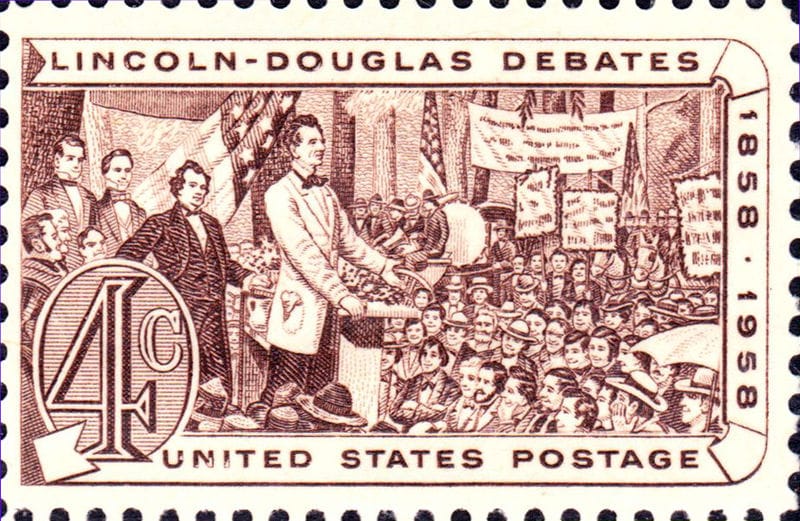- Debateleague.club
- Posts
- Refutation - The Anti Hero of Debate
Refutation - The Anti Hero of Debate

Imagine you are in a heated chess match with your stubborn opponent. You have your moves planned, hoping your opponent to breakdown. But instead, they dig their heels in deeper and defend their stance. This is Backfire Effect in action.
Debate is permeable to fact. Changing someone’s mind by presenting facts is not as easy as it seems. This is because of the backfire effect, where the person being debated starts to hold their ground even more firmly by questioning the credibility of the factual evidence. Facts armed with refutation strategies go hand in hand to dethrone your opposition’s stance.
The famous Alexander’s Knot:
Getting to the core of the argument, cracking the dilemma and breaking the alexander’s knot by asking that important question is crucial.
Instead of asking, “Is it worth violating civil liberties by torturing people to extract information about terrorism?”, a skilled debater would ask, “Will torture even gain useful information about terror acts?” If it doesn’t, there is no ethical question because, in that case, you are just arguing about wanting to torture people.
Historical Refutation Tactics
1. The Cuban Missile Crisis
During the Cold War between the U.S. and the Soviet Union, John F. Kennedy had to confront a missile threat when the Soviets established a missile base in Cuba. With the prospect of a full-fledged nuclear war looming over humanity, President Kennedy chose the path of Mitigation Tactic and saved history from descending into destruction.
Despite the Soviets claiming their missiles in Cuba were purely defensive, Kennedy calmly downplayed the crisis. He didn't stoke fears, but rather highlighted the potential for peace. This strategic move wasn't just about avoiding war, it was about reshaping the narrative from fear to hope.
Mitigation is about minimizing the perceived impact of the opposition's claims.
Kennedy used this strategy effectively, arguing that the Soviet threat was not as menacing as it seemed. This shift from military action to diplomatic talks not only prevented escalation but also averted a potential nuclear catastrophe.
2. The Lincoln-Douglas high stakes debate
The stage was set for a high-stakes debate between Lincoln and Douglas. Douglas, a staunch advocate for states’ rights, made his opening strategic move by arguing that states should have the sovereignty to decide whether to permit slavery.
Abraham Lincoln, however, was a master strategist. Rather than blocking Douglas directly, Lincoln employed a classic debate refutation tactic known as Turning the Tables. He seized Douglas's argument and flipped it, exposing a moral flaw: if territories had the freedom to choose, they might perpetuate the inhumane practice of slavery.
By using Douglas's own logic against him, Lincoln quickly turned the debate around. This maneuver was more than a clever debate trick. It resonated deeply with principles of justice and human rights, striking a powerful chord with the audience. Lincoln's brilliant strategy on this debate not only won him widespread support but eventually paved the way for his election as President.
3.The Nuremberg Trials
Amidst the post-World War II chaos, the Nuremberg Trials emerged as the court room drama to decide the future of justice and humanity. In the courtroom, Nazi officials clung to a flimsy defense, pleading ignorance of the Holocaust. But the prosecution, undeterred, embarked on a relentless pursuit of truth by digging the evidences.
The prosecution began to uncover a trove of new evidence - documents, testimonies, even films that painted a grim picture of the Nazi's crimes against humanity. Each piece of evidence was like a puzzle piece, slowly forming a picture that contradicted the Nazis' claims of ignorance. The courtroom watched, spellbound, as the prosecution methodically dismantled the Nazi's defense with their mounting evidence that Nazi officials could no longer defend.
In this courtroom drama, the prosecution's strategy of refutation by additional evidence not only led to the conviction of high-ranking Nazi officials but also set a precedent in international law for holding war criminals accountable. And thus, the Nuremberg Trials became a symbol of justice against the backdrop of humanity's darkest hour.
4. The Women Suffrage Movement
Should women be given the right to vote? This was the major debate during Women Suffrage Movement. During the Movement, advocates for women's rights like Susan B. Anthony and Elizabeth Cady Stanton used a debating technique called Reductio ad Absurdum.
This technique involves taking an opponent's argument to its most extreme logical conclusion in order to highlight its flaws or absurdity.
In this case, the opponents argued that women were too emotional to vote. The activists, in turn, used this argument against them, suggesting that if being emotional was a valid reason to deny the right to vote, then many men should also be denied that right. This demonstrated the absurdity and flaw in the opponents' reasoning, leading to a shift in societal perceptions about women's rights. Using these effective rhetorical strategies and logical arguments, the suffragettes played a crucial role in the passage of the 19th Amendment, which granted women the right to vote, thus expanding democratic rights for women.
Reductio ad absurdum similar to the tactic of turning the tables, demonstrates absurdity by taking an argument to its illogical extreme. Turning the tables shifts the argument's focus or uses opponent's logic against them strategically. While both aim to undermine opposing arguments, they employ different approaches to achieve this goal.
Great leaders sometimes take the stance of the anti-hero to refute a proposition and solidify their stance. Refutation strategies are analogous to a goalkeeper defending a penalty to win the World Cup for their nation. These moments of strategic brilliance, whether in sports or leadership, require immense courage and precision.
When leaders are in the spotlight of this governance crossroads, a great refutation tactic can more often than not, decide the history and the future of mankind.